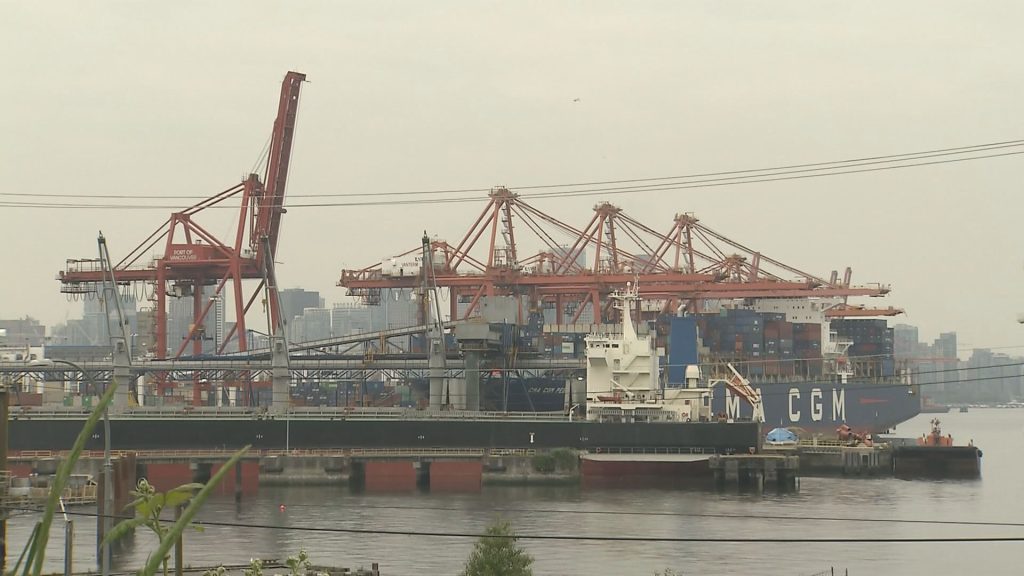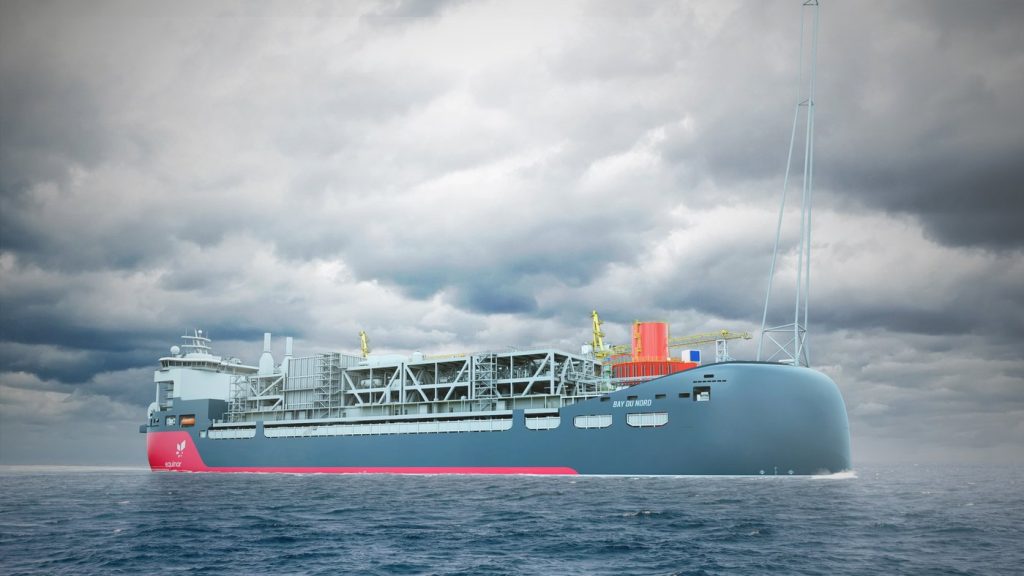B.C. port workers reject mediated agreement, gov could impose new collective agreement: O’Regan

Posted Jul 29, 2023 01:35:52 AM.
Last Updated Jul 29, 2023 04:56:38 PM.
The union representing B.C. port workers says its membership has voted to reject a mediated contract offer it reached with the BC Maritime Employers Association (BCMEA) last week.
In a statement Friday, the ILWU Canada Longshore Division says union members said: “NO to the Terms of The Settlement.”
“Today we call on our direct employers to come to the table and negotiate something that works for our members and the industry,” the statement continued.
The union announced last week that it was recommending the terms of the tentative deal to its membership.
Unionized workers took off the day shift this past Tuesday to learn the details of the agreement, before voting was held over two days later in the week.
The BCMEA earlier said the offer that was being presented was the same one leaders of the ILWU had previously rejected, which briefly sent workers back to the picket line last week.
Related articles:
-
B.C. port union to recommend settlement agreement to its members
-
ILWU Local 502 says second tentative deal reached in B.C.’s port strike
-
B.C. port strike has disrupted nearly $9B in trade: business, industry groups
Strike action was suspended when the contract was reached with the help of a mediator but was then reinstated when the union leadership turned down the plan.
A labour board ruled the second strike by the port workers was illegal, prompting the union to issue 72-hour strike notice, which it then reversed hours later.
Following word that the union had recommended its members ratify the deal, Federal Labour Minister Seamus O’Regan thanked the ILWU for sending the terms to a vote.
“Right now, BC ports are operating, but we need long-term stability,” he said on social media on July 21.
Last night, the membership of the ILWU Canada voted to reject the tentative agreement with the BCMEA.
While our BC ports are operating right now, we need long-term stability.
My full statement: pic.twitter.com/eWCvIB0tRn
— Seamus O’Regan Jr (@SeamusORegan) July 29, 2023
However, on Saturday, O’Regan took to social media, saying, “This state of uncertainty cannot continue.”
“While our BC ports are operating right now, we need long-term stability for the many workers and businesses that depend on them,” he said of the rejection.
O’Regan went on to say that he has directed the Canadian Industrial Relations Board (CIRB) to determine whether the union’s rejection of the agreement means parties can no longer continue to negotiate a resolution.
“If the Board determines that is the case, I have directed them to either impose a new collective agreement on the parties or impose final binding arbitration to resolve outstanding terms of the collective agreement,” he said.
O’Regan says the Canadian economy can’t have any further disruptions to its economy, and the government is prepared for “all options and eventualities.”
“Canada is a reliable trading partner to the world. That is a good thing for every worker and employer in this country.
“But our credibility depends on the stable operation of our supply chains. We must do everything we can to preserve that stability,” he said.
It’s unclear what this latest development will mean when it comes to potential job action.
A 13-day strike that started on Canada Day stopped billions of dollars’ worth of goods from moving in and out of some of the country’s busiest ports.
In a statement late Friday, the BCMEA says it is “disappointed” to learn that the voting members of the union have “rejected the four-year tentative agreement.”
“The proposed four-year agreement was a good deal that recognized the skills and efforts of B.C.’s waterfront workforce while providing certainty and stability for the future of Canada’s West Coast ports,” it said.
“ILWU Canada’s inability to ratify a fair and balanced recommended tentative agreement has left Canadians, businesses, and the entire supply chain in a perilous state that has cost billions and will further hurt affordability and increase costs for Canadians.”
The association says the proposed deal provided a “generous compounded wage increase of 19.2%,” which would have seen the median longshore wage increase from $136,000 to $162,000 per year.
“Over the course of the past 13 years, longshore wages have risen by 40%, ahead of inflation at 30%,” the BCMEA claimed.
The association says it is now awaiting direction from the federal government on the next steps.
“Canada’s international reputation as a stable trading partner has been jeopardized and it can no longer tolerate further ambiguity and instability to the nation’s supply chain network,” it said.
Back-to-work legislation could be brought in if union strikes again
Meanwhile, the Canadian Federation of Independent Business’s vice president of national affairs believes the government should introduce back to work legislation if the union issues another strike notice.
“Moving forward, the government should introduce legislation to make ports, like those in B.C., essential service, to avoid having to deal with a similar situation again in the future,” Vice-President Jasmine Guenette said.
For Canadian small businesses, it is imperative that ports are fully operational, he adds.
“We are hoping that both the union and the employer will be able to sign on to an agreement that they both feel is good. But if an agreement cannot be reached, the role of the federal government will be to introduce back-to-work legislation, to avoid another costly strike,” Guenette said.
-With files from The Canadian Press, Raynaldo Suarez, and Renee Bernard








